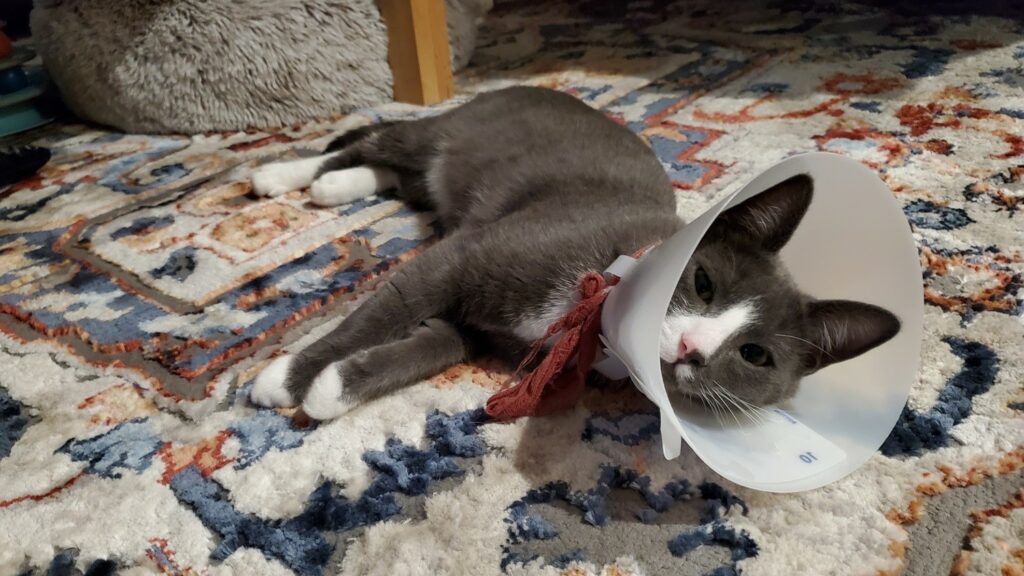Spaying or neutering your kitten is one of the most important decisions you can make for their long-term health and happiness. It may not be the most glamorous part of pet parenting, but it is a key step in preventing unwanted behaviors, unexpected litters, and serious health issues down the road.
The timing of the procedure matters more than most cat owners realize. Choosing the right window helps your kitten recover faster and sets them up for a smoother transition into adulthood.
If you are wondering when to schedule the appointment, what the procedure involves, or how to prepare your kitten for it, keep reading.
Why Spaying or Neutering Matters
Before diving into the timeline, it helps to understand why this surgery is such a big deal. Spaying or neutering is not just about preventing pregnancy. It also has a range of benefits that support your kitten’s well-being.
Health benefits:
- Reduces the risk of certain cancers
- Prevents infections like pyometra (in females)
- Decreases the likelihood of hormone-related diseases
Behavioral benefits:
- Reduces roaming, yowling, and territory marking
- Lowers aggression in males
- Decreases the chances of unwanted mating behavior
Community benefits:
- Helps reduce overpopulation and crowded shelters
- Prevents unplanned litters and stray kitten births
- Improves long-term adoption rates for rescued animals
In short, it is a win for you, your kitten, and the larger cat-loving world.
Best Age to Spay or Neuter a Kitten
Most veterinarians recommend spaying or neutering a kitten between four and six months of age. This time frame is ideal because your kitten is still young enough to bounce back quickly but old enough to safely undergo anesthesia and surgery.
Some clinics and shelters perform early-age spay or neuter as young as eight weeks, especially before adoption. This approach is safe in most cases and helps ensure all adopted kittens go to their new homes already fixed. However, if you are working with your own vet, they may suggest waiting a little longer based on your kitten’s health and size.
Related read: The Myth of Nine Lives and What It Really Says About Cats.
Here is a quick breakdown of what to expect by age:
2 to 3 months:
May be too young for surgery unless done at a shelter. Not recommended for most private practices unless medically necessary.
4 to 5 months:
Ideal time for spay or neuter. Recovery is fast, hormones have not kicked in fully, and the surgery can prevent the first heat cycle.
6 months and older:
Still safe for surgery, but some behaviors may have started to develop. Females may already have gone into heat, and males may begin marking or becoming territorial.
If your kitten is already older than six months, it is not too late. Spaying or neutering is beneficial at any age, so go ahead and talk to your vet about the next steps.
Differences Between Spaying and Neutering
Though both procedures fall under the umbrella of sterilization, they involve different surgeries depending on your kitten’s sex.
Spaying (female cats):
Spaying removes the ovaries and usually the uterus. It prevents heat cycles, pregnancy, and related behaviors. The surgery typically requires a small abdominal incision and takes about 20 to 30 minutes.
Neutering (male cats):
Neutering removes the testicles, which prevents the production of testosterone. It is a shorter procedure than spaying and involves a small incision in the scrotum. Most male cats recover very quickly and experience minimal discomfort.
Both procedures are performed under general anesthesia and require a short recovery period.

What did you guys do to me?? I thought we were just going for a ride in the rolling house! Next thing you know, I don’t feel so well and have this stupid cone around my head. #WhatsWithTheStupidCone #Something’sMissing #YouGuysAreDicks
Winston
What to Expect Before and After Surgery
Your vet will give you pre-surgery instructions that usually include withholding food and water the night before. Make sure your kitten is in good health and up to date on vaccinations before scheduling the procedure.
After surgery, you can expect:
- A little grogginess and sleepiness
- Slight swelling or redness at the incision site
- A reduced appetite for the first 24 hours
- The dreaded cone of shame, if needed, to prevent licking
Your job is to provide a quiet space for recovery, monitor the incision daily, and make sure your kitten is eating, drinking, and acting normally. Most kittens bounce back quickly, especially if the surgery happens when they are young and resilient.
Common Myths About Spaying and Neutering
Let’s clear up a few misunderstandings that often confuse well-meaning cat owners.
Myth: My female cat should go through one heat cycle before being spayed.
Fact: There is no benefit to waiting. In fact, spaying before the first heat significantly reduces the risk of mammary cancer later in life.
Myth: My kitten will get fat after being fixed.
Fact: Weight gain is caused by overfeeding and lack of exercise, not the surgery. With a balanced diet and regular play, your cat will stay healthy and fit.
Myth: It is cruel to remove reproductive organs.
Fact: The surgery is safe, routine, and helps prevent serious health issues. Most cats recover within a few days and go on to live longer, healthier lives.
Final Thoughts: Give Your Kitten the Best Start
Spaying or neutering your kitten is one of the best decisions you can make for their future. It is safe, simple, and backed by decades of veterinary science. The timing may vary slightly depending on your vet and your kitten’s development, but four to six months is a great target to keep in mind.
Not only will you be avoiding behavioral headaches and potential health risks, but you will also be contributing to the greater good by helping reduce the number of unwanted cats in shelters.
So go ahead and make the appointment. Your kitten might not thank you today, but future you will be very glad you did.
Sources:
Spaying and Neutering Kittens https://www.petmd.com/cat/general-health/spay-or-neuter-kitten
Kitten Sterilization Guidelines https://www.aspca.org/pet-care/cat-care/spayneuter-your-pet
Understanding Early Spay/Neuter https://vcahospitals.com/know-your-pet/early-spayneuter-in-cats
Cat Behavior and Sterilization https://www.icatcare.org/advice/spaying-and-neutering-cats
Best Age to Spay or Neuter https://www.humanesociety.org/resources/when-spay-or-neuter-your-pet
Recent Posts
Explore why cats sleep so much, including the evolutionary reasons and the health benefits they derive from their extensive sleep patterns.
Explore the causes of cat dandruff, its implications, and effective ways to deal with it so your feline friend remains happy and healthy.


